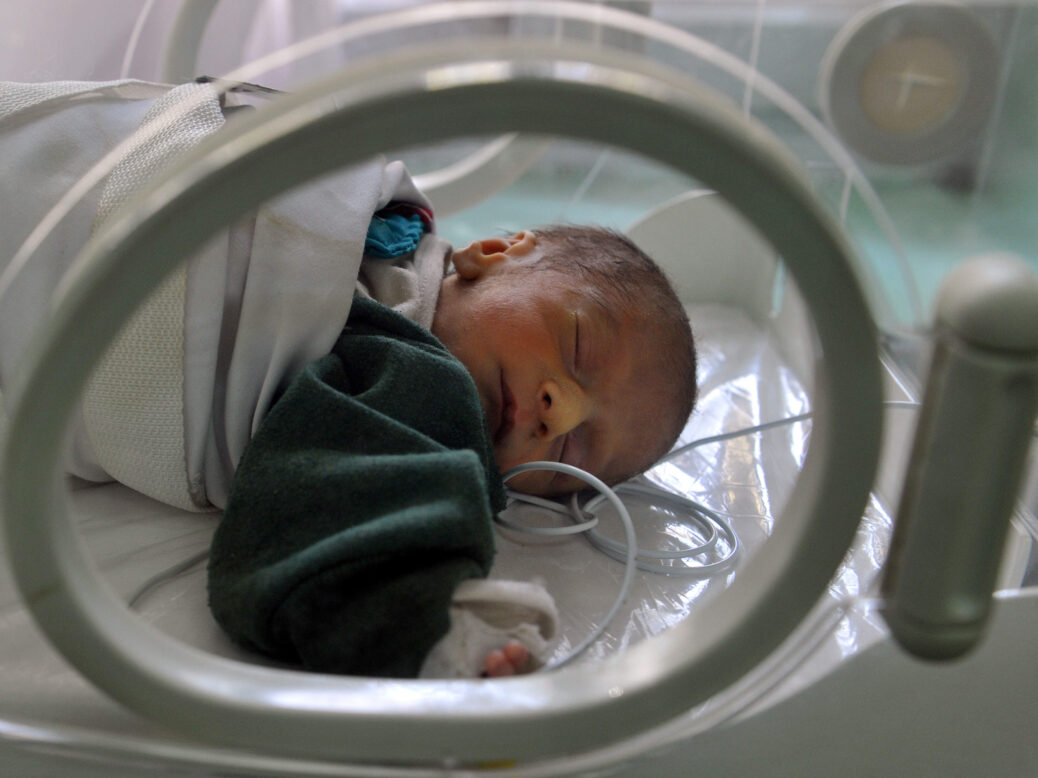
Older mothers, feel guilty no more! David Richmond, president of the Royal College of Obstetricians and Gynaecologists, has decided that there’s no point in berating you for having “left it too late”. The shift towards older motherhood is, he claims, unavoidable and hence he’s not here to judge you:
I think it [the trend] is irreversible because of increasing equality in the social, professional, financial [and] corporate environment we live in. If you put a man in that situation, they would do exactly the same. I completely respect that position.”
At thirty-nine and as the mother of two small children, perhaps I ought to be delighted at this laissez-faire attitude, but the truth is, I’m not. It’s not that I regret having children later (I don’t), it’s that any talk of an “irreversible” trend due to “increasing equality” strikes me as untrue. The apparent inevitability of older motherhood isn’t a sign than we’re becoming a more equal society; on the contrary, it relies on an implicit acceptance of all the inequalities that persist, ones based not just on reproductive difference, but on class, race and age.
Older motherhood is nothing to be ashamed of. Nevertheless, the risks involved in delaying conception – risks which include miscarriage, high-risk pregnancy or simply never conceiving at all – are not a price we are paying for our individual workplace “liberation”. They’re the price individual women pay for a broader societal resistance to economic redistribution and cultural transformation. That it is, apparently, unthinkable that we organise our working lives and social relations any other way is anything but a cause for celebration. As Nina Power notes in One Dimensional Woman, this betrays an appalling lack of imagination in the face of contemporary capitalism:
We can have as many vibrators as we like, and drink as much booze as we can physically tolerate, but anything else outside the echo chamber of money-possessions-pleasure is strictly verboten. Communes, you say! Collectives! Alternative models of the family! What are you, mad?! It’s a weary indictment of the state of things when virtually every book on these topics has been removed from your university library. People can’t possibly have once thought that there might be more to life than Daddy-Mummy-Me…could they?”
And yet they did. However resigned we are today, it wasn’t always like this. One of the key demands of second-wave feminism was free 24-hour nursery care, making economic independence feasible for mothers of any age, class or familial set-up. While this may now seem hopelessly naïve, it’s worth noting how much further away the UK is from such a goal in comparison with other OECD nations. How “inevitable” are a woman’s choices when they vary so greatly depending on where she was born?
Radical feminism has argued that men exploit women for their reproductive capacities. To many this will sound ludicrous. But they don’t, not any more! Women have the right to choose! But (relatively) legal abortion, access to contraception and a (slight) reduction in the expectation that all women must breed are not the same as true reproductive justice. This is a point that Black feminists and womanists have made repeatedly but which middle-class white feminists have often ignored, focussing instead on how to work the current system before realising it doesn’t work, not even for us. It’s a mark of our privilege that we leave it too late. We’ve bought into a myth of choice which wasn’t even offered to the majority of women.
In a 1989 interview with Time magazine (quoted by Power), Toni Morrison offers up a vision of motherhood that is truly inclusive, dependent not on wealth, race, age or the presence of a partner (male or female):
I don’t think a female running a house is a problem, a broken family. It’s perceived as one because of the notion that a head is a man. Two parents can’t raise a child any more than one. You need a whole community – everybody – to raise a child […][Young Black mothers] can be teachers. They can be brain surgeons. […] I want to take them all in my arms and say, ‘Your baby is beautiful and so are you and, honey, you can do it. And when you want to be a brain surgeon, call me – I will take care of your baby.’ That’s the attitude you have to have about human life. But we don’t want to pay for it.
When challenged over how one would in fact pay for this since “you can’t just hand out money”, Morrison’s response is simple:
Why not? Everybody gets everything handed to them. The rich get it handed – they inherit it. I don’t mean just inheritance of money. I mean what people take for granted among the middle and upper classes, which is nepotism, the old-boy network. That’s shared bounty of class.
To put the injustice in such simple terms is, I think, devastating. We deprive mothers and babies of the support they need to thrive because we’ve reduced it to a matter of “individual choice”. We describe the different choices women make as “inevitable” even though they are quite clearly dependent on social prejudice, racial privilege and the prioritisation of profit over human life. We even have the nerve to couch this in terms of “increasing equality”. It is nothing of the sort.
My partner once taught a bright eight-year-old girl who told him she planned on having a baby at twelve. Taken aback, he asked her why:
If I leave school at 16 the baby will just be starting so I’ll be able to find a job and get my life back.”
How we laughed. Laughed and laughed. And then we stopped laughing as it became clear that, given the choices currently available to young women, it’s not that ridiculous a plan. We could all be doing so much better but right now we lack the will.






